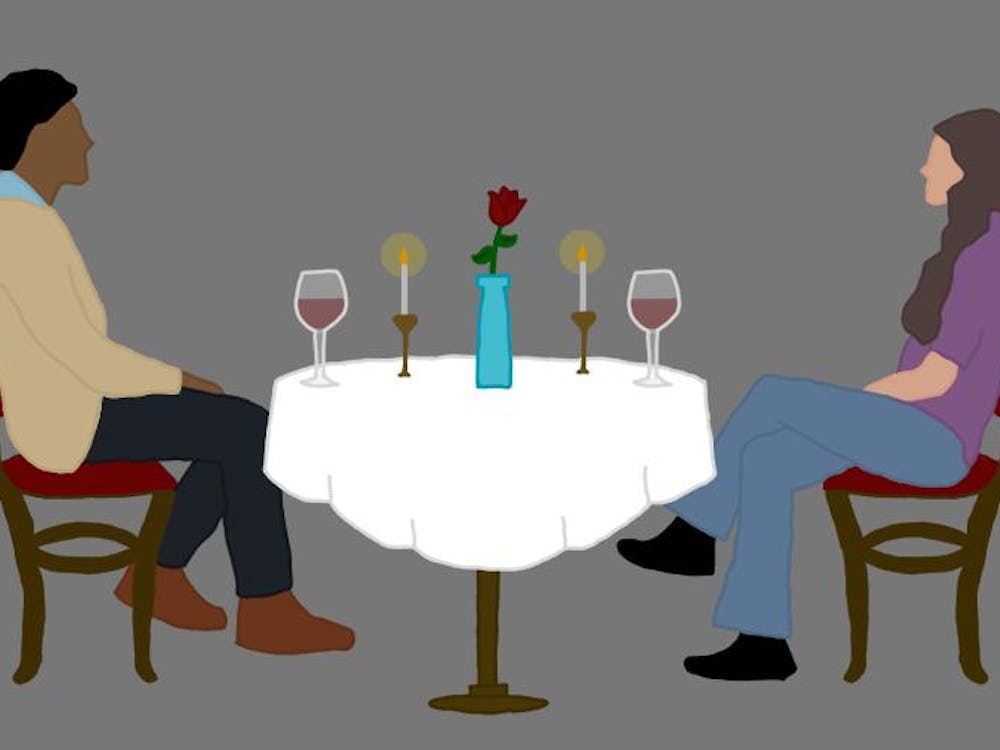Doctors Robert Brown and David Snyder sit together with businessman Stephen Roszel at a candlelit table in Brown's spacious and classically decorated home.
They eat grilled chicken Caesar salads prepared by Brown's wife, and discuss the status of their course at the University with a peculiar mix of enthusiasm and concern.
These men, along with a group of carefully selected teaching assistants, are responsible for EDHS 482, better known as Mental Health.
Since the course's inception in the 1960s, students have listened to Brown, a clinical professor of psychiatric medicine, lecture, as well as hear first hand accounts from some of his patients. What began as a small class comprised of 14 male students, today has evolved into one of the most popular courses on Grounds, with enrollment reaching over 800 students at one point.
Currently, admission for the course is capped at about 250, with disappointed students turned away every semester as the professors attempt to keep the class more personal.
Yet when students register for classes this month, Mental Health no longer will be among the course listings. Because of budgetary cutbacks in the Education School, this semester will be the class's last.
"The question is, what are they going to replace it with?" Roszel asked. "This course, mind, body and spirit, is food for the soul."
As the course has evolved over the years, it has come to teach what Brown refers to as the three components of mental health - mental, physical and spiritual fitness. This construct stands as an integral part of how the course is taught, and each aspect receives special attention in lecture, discussion sections and through guest speakers in specialized fields.
"We want to teach people to become their own psychiatrist," Brown said. "The top reason students fail out of college is for mental health reasons."
Yet there remain those who are skeptical of the course's validity.
One reason the course has come under recent fire from administrators is its reputation as an easy, or "gut" course. In response to such criticisms, the team of professors has made the curriculum more intensive, but these men stress that the grade is not their focus.
"You come to the University to learn about your life," Brown said. "You can still get an A, but to us that's almost irrelevant."
What is relevant is that no other course in the University, and few throughout the country, according to Brown, place such an emphasis on the students themselves. These men want to ensure that students actually integrate the course's lessons into their daily lives.
"The professors aren't expecting kids to regurgitate facts, but to absorb material and reflect that knowledge," said fourth-year College student James Nowlin, the mental health executive administrator and a former Mental Health student. "They don't focus as much on regulating knowledge on a midterm or final."
In fact, undergraduates teach half of the class.
|
CLASS="article--image"
BORDER="0">
|
"This is the students' course," Snyder said. "It belongs to the students."
The course within the course, EDHS 493, teaches undergraduates how to lead discussion groups constituted of their peers. Teaching assistants go on two group retreats and dine with the professors in order to build a collaborative community in which they are comfortable and prepared to contribute actively to the structure and content of the class.
They acquire leadership skills of a type that often only is available to graduate students, and after their involvement, the professors are so confident in their abilities that they often will write them raving recommendations for their future schools or employers.
As for Brown, Snyder and Roszel, their commitment to the course stems from their love of the subject matter.
They receive relatively little in terms of financial compensation, and Snyder and Roszel drive in weekly from their homes in Northern Virginia in order to teach.
This, said Nowlin, is a testament to their devotion to the course and their students.
"Everyone here feeds off of each other's energy," Nowlin said. "No one is here for the prestige and the money, but because they love the ideals of the course."
One of these ideals, however, has been the source of additional trouble for the class.
The emphasis on spirituality in the course has caused some discomfort in the past, seen as an attempt to not only advocate religion, but to suggest that without it, a person could not lead a complete, mentally sound life. This, according to the professors, has not been their intent, and they have since made conscious efforts to emphasize some sort of personal inner strength, as opposed to any particular belief system.
Students now understand the purpose of their message.
"They've definitely highlighted a personal spirituality as opposed to organized religion," said Carolyn Abbate, a second-year College student currently enrolled in EDHS 482. "And in discussion the teaching assistants are very open to many alternative viewpoints."
Even with the positive and proactive response to criticism, as well as the benefit both teachers and students claim to gain, Mental Health seems to have run its course, at least in the Education School. But these three men retain hope that maybe Mental Health does not have to leave the University entirely.
Snyder stressed that as long as there are students with the desire to instruct and to learn about themselves, regardless of which school funds it, the class can continue to thrive.
One suggestion calls for the College to adopt Mental Health, even if the course may have to undergo certain modifications to fit the College profile.
"We're open to any suggestions that will allow the course to go on in its essence," Snyder said.
Whatever the suggestions may be, most supporters say that following them is preferable to canceling the course altogether. Teaching assistants and students alike are distressed about the termination of a class that proved so profoundly important to them.
"Mental Health has been a historic course provided by the University for decades," said David Vaughn, a third-year College student and teaching assistant this semester. "I just think it is a shame for this course to be done away with, especially since it has been restructured over the last year into a non-gut class."
Regardless of what happens, those who were able to be a part of Mental Health will remember it fondly.
"As a student I absorbed these ideals and have practiced them in my own life," Nowlin said. "I think many others can say this course has changed their lives for the better"







